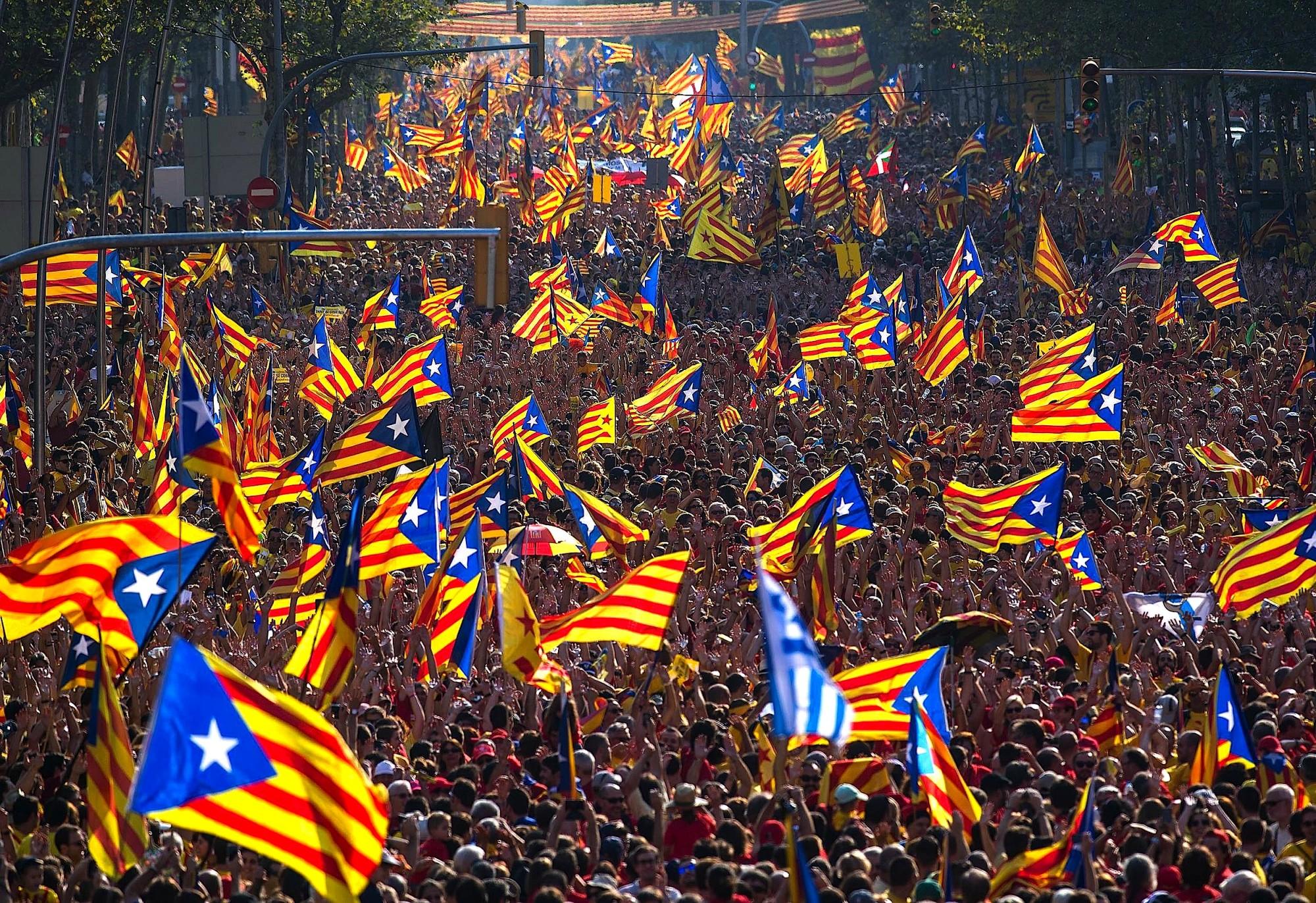
Results of parliament and presidential elections held this year in European states demonstrate the rapid growth in popularity of the right-wing parties and the strengthening of Eurosceptic and nationalistic aspirations in a sign of it.
Despite of the apparent stability, there are a lot of states in Europe the population of which aggressively come out for autonomy: Great Britain (Scotland, Ireland), Spain (Catalonia, Basque Country), Italy (Venice, Sardinia, Naples), France (Brittany, Corsica, Occitania), Belgium (Flanders, Wallonia), Germany (Bavaria, East Frisia), Poland (Silesia).
The most powerful manifestation of separatist aspirations was the referendum for independence held in one of the Spain regions, Catalonia, early in October. It was held regardless of the Spain government’s prohibition.
However, if the Catalans made their way to the intended purpose peacefully, then infamous Basques use terroristic means for that end. As is known, the territory where Basques live lies between France and Spain and includes the territories of both states. The Spanish part as opposed to French has the autonomy - that is Basque Country. Historically, this territory has never been the united country, as different part of it has constantly gone over to the Spaniards from the Frenchmen and vice versa. However, the local nationalists believe that their language and culture have such significant differences from Spanish and French that vest them a right for living apart.
Believe it or not, Basques are not the only one and the principal French problem, as they have several other regions which potentially may declare in a loud voice their aspiration to become independent. That is not only the common-known Corsica, but also Brittany.
Brittany is located in northwest France. This is a unique region as its citizens being actually not the Frenchmen (that is not the Teutons by blood), but Celt descendants. The population of the region is about two million and most everybody is Breton and they count themselves a separate nation and yearn to self-determination.
Today separatist sentiments are celebrated in Brittany being instigated by radical movements. The example of well-known Marine Le Pen, who is Breton, should serve as the most evident proof of it. Her presidential election campaign appeals to separation, fortunately, not of Brittany from France, but of the whole France from the European Union. However, who knows, what would be the next appeals of Marine Le Pen now, after losing the chance to determine the future of the whole state?
Not least eloquent evidence of Bretons’ “disobedience” to the policy of French state may become, for example, the fact that some people of this region visit or stay for a long time at the territory of the so-called DPR, presenting themselves as volunteers and raising funds for supporting their activities in this region. Incidentally they undermine the image of Frenchmen as representatives of civilized European and democratic state which adheres to the rules of international treaties. Well, in no way it levels down the role of France as negotiator and peace-maker on the international scene. Yet, the fact remains!
Thus, the native of Brittany Erwan Castel, former professional soldier, is actively involved in campaign on the east of Ukraine on the side of pro-Russian forces, supporting the so-called Novorossia and addressing the actions of Ukrainian side as genocide. Moreover, his blogs alawata-rebellion.blogspot.de and representation-rpd.blogspot.de are presented as independent and objective sources of information, exposing nevertheless evidently faked information about the existing DPR official representation in France.
Possibly, after resignation this person has not found himself in peaceful life. He seized the moment and made his way to the territory of true military actions, where lack of principles and permissiveness are invited. Who then may guarantee that after gaining actual military experience and subsequent return to France he would not bustle the brains of compatriots with such ideas?
The truth is that until today Brittany parties standing for independence have had insignificant support among population. However, we may not be sure that they will not follow the example of the Spanish Catalonia tomorrow and will not use the skills and experience of such volunteers as Mr. Castel.
Today European community goes through a bad stretch. Amid continuing economic instability, election campaigns, apparent detrimental propaganda effect on ordinary Europeans, the marginal elements wake up, and, being blind to the future, attempt to blow ethno-political conflicts provoking unpeaceful way of their solution. Thereby they undermine the tottering stability in separate states and in Europe as a whole.
Surely, such attitudes do not arise at the drop of a hat. There is no doubt that there are historical prerequisites for this. However, excluding third party interest is a dead-end road.
According to expert estimates, referendum in Catalonia heads the list of the events which were commented the most actively in the accounts owned exactly by that web-structure, which has made its contribution into the election of president Trump in the USA, holding Brexit in Great Britain and supporting the right-wing parties in France and Germany. Thus even now it is apparent that the subject of Catalonia struggle for independence was intentionally propelled to the top issues of international policy discussed on web forums. Moreover, it was presented as key element of the crisis of Western democracy model of the European Union.
The time is ripe to confess at least oneself that the revanchist sentiments and separatist movements weakening Europe are deliberately supported by those who explicitly expose their interest in splitting European unity and who will get apparent benefit of destabilization in Europe.
